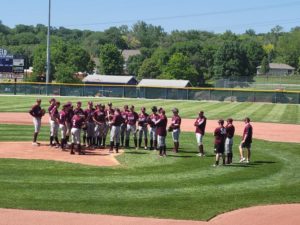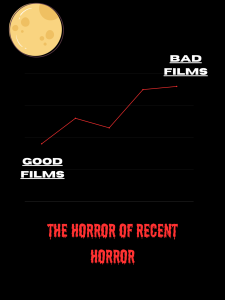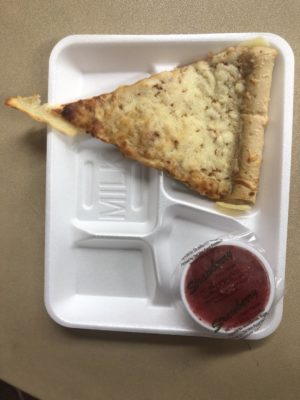Editorial: lockdown drills need to be taken more seriously
December 17, 2019
Students of all ages across the country are no stranger to the scrolling headlines announcing the country’s most recent school shooting. On Tuesday, Nov. 12, Saugus High School in Santa Clarita, Cal. was that headline. When a student entered their quad area and shot five of his peers, killing two, it sent the familiar spark of fear among American students.
Bellevue students are not immune to this fear. It has served as a driving force for our students to ask “Would I be prepared if this happened to me?” Yet, the apathetic and annoyed attitude that staff show towards lockdown drills despite their frequency gives the blatant answer to that question: No.
Our lazily-conducted drills are ineffective and give the bare minimum effort in order to prevent inconveniencing anyone at the school. The identical advisory drills (where teachers are notified prior to them) do not practice anything other than flipping a light switch and sitting idly in the corner.
That procedure fails to account for so many other situations. Would our students know what to do if they were caught in the hallway, eating lunch, or lounging in the commons when something broke out? No. A stampede of unprepared students would push and shove their way through our tight hallways, every student for themself. It would be chaos.
In the Secret Service’s 2019 study “Protecting America’s Schools: A U.S. Secret Service Analysis of Targeted School Violence” 44% of the observed school shootings occurred in less than one minute: the Nov. 12 Saugus High shooting took merely 16 seconds. This means that the immediate actions that are taken by students when something breaks out could be the difference between life and death.
In the past four years, our school has never conducted a lockdown drill outside of our advisory classrooms, which only gives the impression that school shootings aren’t serious enough to be worth the time of day. The other issue with our procedures is that they lack the necessary in-depth discussions and coverage that would prove that we are taking the issue seriously.
We’re not saying that we have to become trained soldiers, but we need to learn how to protect ourselves. This includes learning what warning signs look like, which is yet another topic avoided by our current instruction. In the Secret Service report, every observed attacker “exhibited concerning behaviors” prior to their attack. These include communicating their intentions to someone else in some way. Part of our procedure needs to include how to recognize those messages and what to do with them.
Many problems surrounding school shooting drills come from the age gap between those in charge of running drills and the students that need them. Our parents, teachers, and other adults grew up with much less trauma than current students, so it’s hard for them to understand the anxious mindset we get when school shootings are brought up. No one seems to want to deeply discuss it with young kids or take it seriously because it is uncomfortable.
But if that were to happen, the communication gap could be bridged and it might provide insight as to what students are concerned about. It will be hard, and it will be unsettling: but it should be, and needs to be, that way.
One of the things that everyone needs to do better is to focus on controlling what we are able to. It does no good to blame the greater political system or government when issues like gun control are not going to be solved in the immediate future. It does not matter what your political affiliation is. Excusing inaction by blaming politics and the government is a selfish act that leaves the children of our school systems hanging.
It is with that mindset that we have created a generation of students who have had to worry about active shooters since kindergarten, and we owe it to them to be adequately prepared for the very situation that they fear.
The tragedies of our high school years should be made up of things like heartbreaking football losses, bombing a quiz, and failing your driver’s test. They should not include losing your peers, teachers, or friends in an appalling event that we were ill-prepared for.






